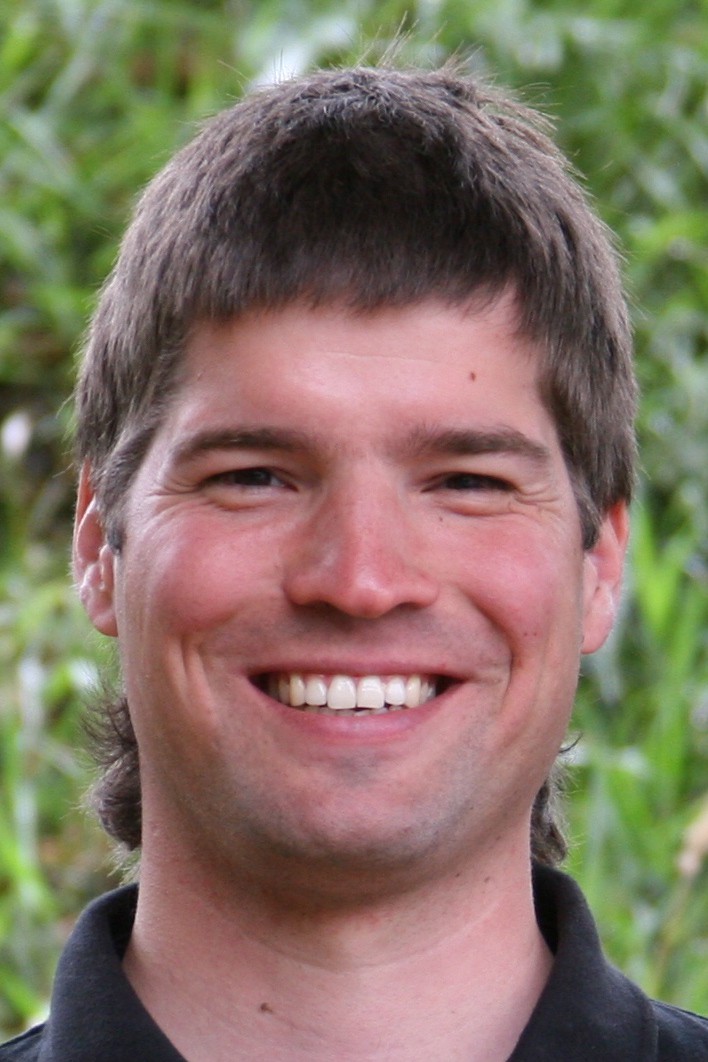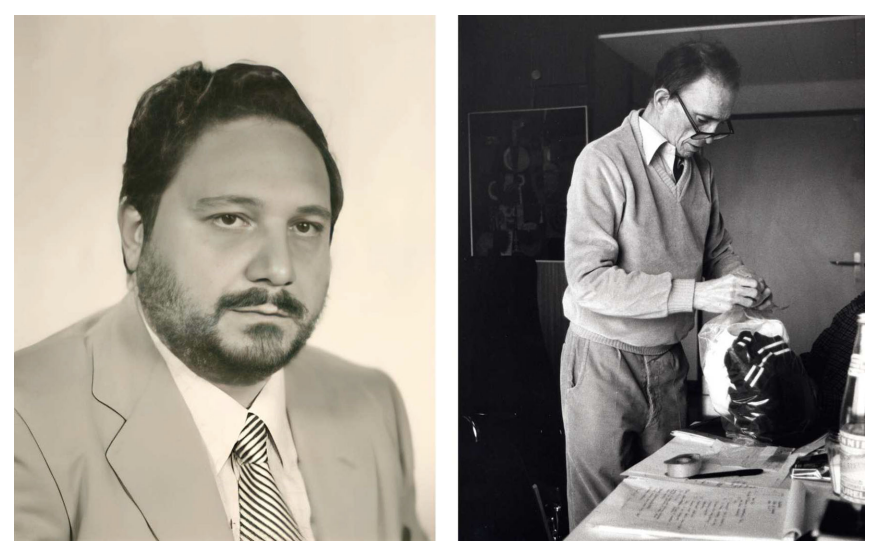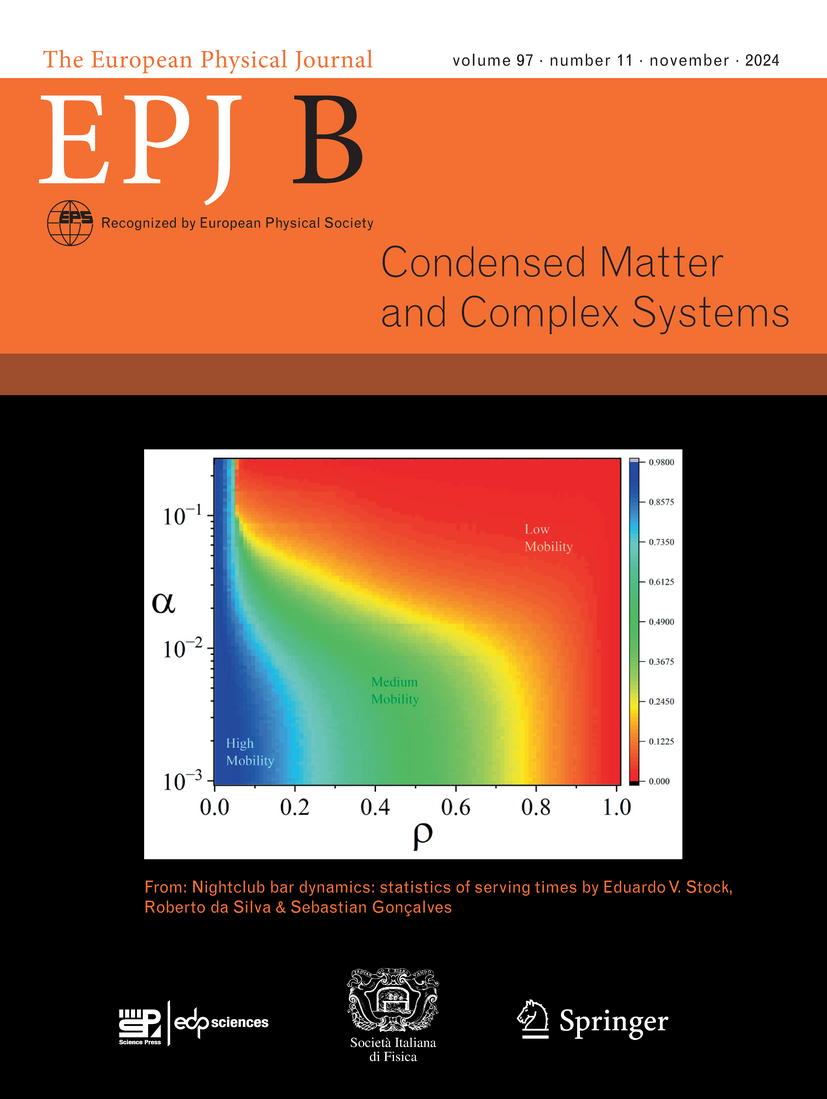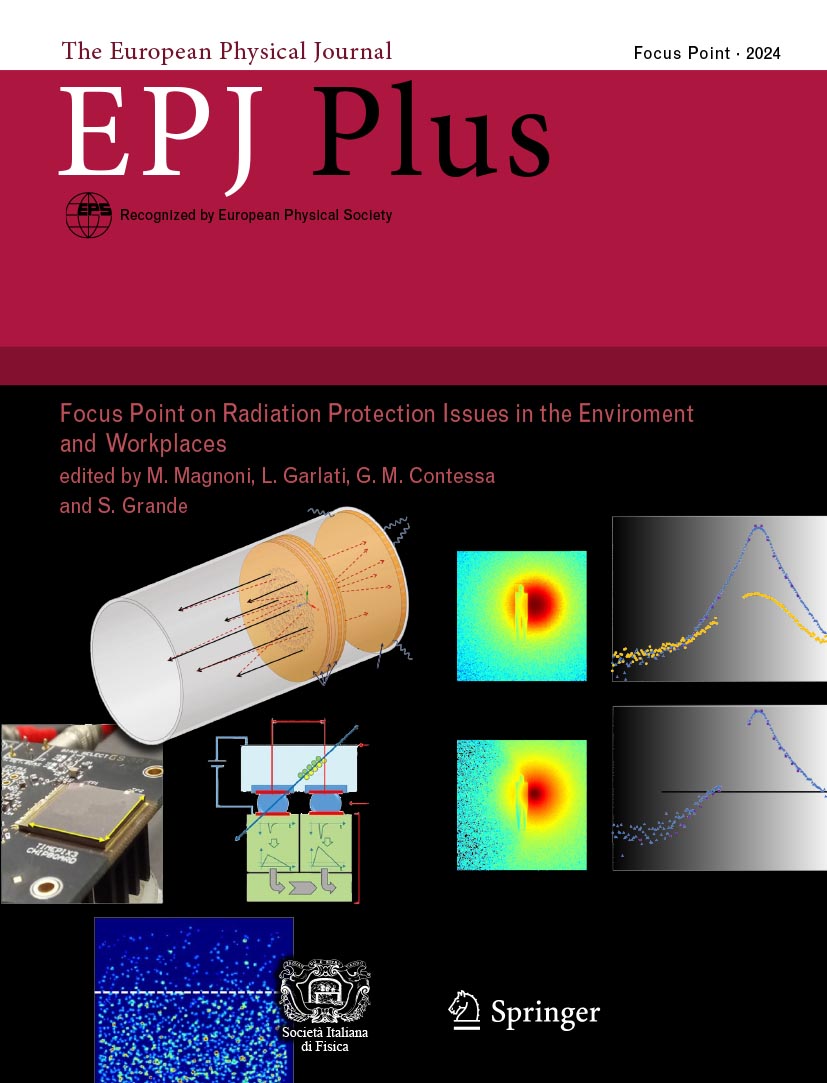News
EPJ B welcomes new Editor-in-Chief Philipp Hövel
- Details
- Published on 20 January 2025

The European Physical Journal B is glad to announce that Dr. Philipp Hövel (Saarland University, Saarbrücken, Germany) has been appointed as Editor-in-Chief for the section on statistical physics and complex systems.
Dr. Hövel will work alongside Prof. Egger to continue guiding and developing the journal.
The journal and the Publishers, take the opportunity to thank Prof. Heiko Rieger whose work and leadership have been invaluable.
EPJ H Highlight - Personal reflections on the foundations of Lattice Gauge Theory
- Details
- Published on 17 January 2025

Through a talk at the Lattice 2024 Conference in Liverpool, Dr John Kogut reflects on the early years of a theory which would come to play a pivotal role in modern physics
Lattice Gauge Theory (LGT) provides a mathematical framework for studying the properties of quarks, and the strong force which binds them together. John Kogut is a pioneer of LGT, and provided his perspectives on the foundations of the theory through a short talk at the Lattice 2024 Conference, now published in EPJ H: Historical Perspectives on Contemporary Physics.
EPJ H Highlight - Touschek and Gatto: exploring a friendship that would shape fundamental physics
- Details
- Published on 15 January 2025

A review of personal exchanges and personal communications sheds new light on the collaboration between both researchers, which would lay the foundations for groundbreaking discoveries in particle physics
The Large Hadron Collider (LHC) made its groundbreaking discovery of the Higgs Boson in 2012, but its ancestry can be traced back over 60 years to the first electron-positron collision experiment in Italy. Named Anello di Accumulazione (AdA), the experiment was the world’s first collider of matter and antimatter.
Through new research published in EPJ H: Historical Perspectives on Contemporary Physics, Luisa Bonolis, a historian of physics from MPIWG in Berlin, together with particle physicists Franco Buccella from INFN Roma1 and Giulia Pancheri at INFN Frascati Laboratories, tell the little-known story how AdA’s theoretical foundations were shaped by the collaboration between Bruno Touschek and Raoul Gatto: two pioneering physicists with a deep knowledge of the properties of fundamental particles.
EPJ Data Science appoints Prof. David Garcia as co-Editor-in-Chief
- Details
- Published on 14 January 2025

EPJ is pleased to announce that Prof. David Garcia has been appointed as co-Editor-in-Chief of EPJ Data Science, effective January 2025. He will be responsible for overseeing the editorial process and development of the journal, working closely with Dr Yelena Mejova, who continues to serve as co-Editor-in-Chief.
David Garcia is Professor of Social and Behavioral Data Science at the Center for Data and Methods in the Department of Politics and Public Administration at the University of Konstanz. He is also associate faculty at the Complexity Science Hub Vienna and visiting professor at the Barcelona Supercomputing Center. He works on the analysis of human behavior with digital trace data and computational models. He has specialized in the analysis of collective emotions and polarization with methods from Data Science and responsible Artificial Intelligence.
He has co-authored more than 100 articles in conferences and journals in Computer Science, Physics, Political Science, and Psychology. He served as program co-chair of the 2023 International School and Conference on Network Science and is serving as program co-chair of the 2025 International Conference on Computational Social Science.
EPJ B Topical Issue - New Trends in Statistical Physics of Complex Systems: Theoretical and Experimental Approaches
- Details
- Published on 14 January 2025

Guest Editors: Tiziana Di Matteo, Giorgio Kaniadakis, Antonio Scarfone, Gianpiero Gervino
This Topical Issue of EPJ B brings together a collection of articles on the recent progress of the theoretical aspects and application in statistical physics of complex systems.
A strong framework for comprehending the behavior of complex systems is provided by statistical physics. Complex systems have emergent properties, or global behaviors that result from local interactions but are difficult to reduce to their component parts. Numerous academic fields, including physics, biology, economics, and sociology, deal with complex systems. The brain's neural networks, ecosystems, social networks, financial markets, and even climate systems are a few examples. In this context, the main objective of statistical physics is to explain how microscopic interactions result in macroscopic properties like temperature, magnetization, or network connectivity. It accomplishes this by handling the numerous degrees of freedom present in complex systems using probabilistic techniques.
Obituary - Prof. Wolf Beiglböck (1939–2024): Reminiscences on the architect of the European Physical Journal and Founding Editor of EPJ H
- Details
- Published on 17 December 2024

This short text is not intended as a traditional obituary nor, certainly, do its authors make any attempt to do justice to Wolf Beiglböck’s many other roles outside scientific publishing, e.g., as academic researcher and teacher [1]. What is more, no doubt others could add many details of his multiple, diverse contributions toward establishing Springer-Verlag as a major international publishing house in physics (including astronomy and mathematical physics), for which in the late 1960s he became an external scientific advisor, yet for all practical purposes acting as a fully fledged publishing editor.
A few such contributions are readily evident from the writings of others, e.g., in [2], about the early years of Communications in Mathematical Physics or from his own account in [3] of the launch of Lecture Notes in Physics and, last but not least, also from his legacy of technical developments, having introduced LaTeX-based production workflows during the 1980s when Springer was the publisher, under his supervision, of Astronomy and Astrophysics (1969–2000). He did so, collaborating with his wife, Urda Beiglböck, a programmer who had also worked for Springer part-time for many years and who passed away in 2014.
EPJ A appoints new Editors-in-Chief as of 1 January 2025
- Details
- Published on 17 December 2024

EPJ A is pleased to announce the appointment of new Editors-in-Chief, Prof. Silvia Leoni for the section Experimental Physics and Prof. Dario Vretenar for the section Theoretical Physics I: Nuclear Physics, while Theoretical Physics II: Hadron Physics and Quark Matter continues to be headed by Prof. David Blaschke. Both former Editors-in-Chief, Prof. Maria Jose Garcia Borge and Prof. Thomas Duguet, will remain with the journal as Managing Editors Reviews and Invited Viewpoints and Perspectives, together with Prof. Patrizia Rossi and Prof. Ulf-G. Meißner.
EPJ Plus Focus Point Issue - Radiation protection issues in the environment and workplaces
- Details
- Published on 13 December 2024

Guest Editors: M. Magnoni, L. Garlati, G.M. Contessa, S. Grande
We are proud to announce the release of the Focus Point "Radiation Protection Issues in the Environment and Workplaces". This collection brings together cutting-edge research presented at the 2022 and 2023 Italian Radiation Protection Association (AIRP) Conferences, along with recent studies from other AIRP scientific events.
With contributions from over 200 radiation protection professionals from universities, research institutions, and public agencies, the issue provides a comprehensive overview of the most important topics in radiation protection. The papers cover critical areas such as Medical and Health Physics, Nuclear Power Plant Decommissioning, Dosimetry, Environmental and Natural Radioactivity, and Non-Ionizing Radiation.
EPJ B Topical Issue - Quantum phase transitions and open quantum systems: A tribute to Prof. Amit Dutta
- Details
- Published on 13 December 2024

Guest Editors: Uma Divakaran, Ferenc Iglói, Victor Mukherjee & Krishnendu Sengupta
Prof. Amit Dutta, a theoretical physicist working at Indian Institute of Technology Kanpur, India, passed away in the beginning of the year 2023, leaving a void in the quantum condensed matter community, and also among his friends, family and colleagues. He was well known for his works on dynamics of quantum phase transitions and for his excellent teaching abilities; more recently, he had started working on open quantum systems as well.
This special issue is a dedication to Amit, bringing together articles on the areas he worked, starting from different types of non-equilibrium quantum dynamics to open quantum systems.
All articles are available here and are freely accessible until 13 February 2025. For further information read the Editorial.EPJ ST Highlight - Assessing the impact of climate on dengue outbreaks
- Details
- Published on 13 December 2024

Machine learning techniques reveal that researchers can improve their forecasts for the spread of dengue by incorporating climate data – but not in all cases
Dengue is a mosquito-borne disease which infects around 390 million people globally each year. Case numbers have grown steadily in recent years, with the most severe outbreaks occurring in tropical regions of South America. To better predict how the disease spreads, it will be vital for researchers to fully understand how dengue case numbers are linked to different aspects of tropical climates.
Through new analysis published in EPJ Special Topics (EPJ ST), a team led by Enrique Gabrick at the Potsdam Institute for Climate Impact, Germany, highlight how dengue forecasts can become more accurate by incorporating climate data – but also show that the success of this approach can vary between different regions. The team’s results could enable researchers to develop more accurate forecasts for the spread of dengue, which may ultimately help to save thousands of lives.







